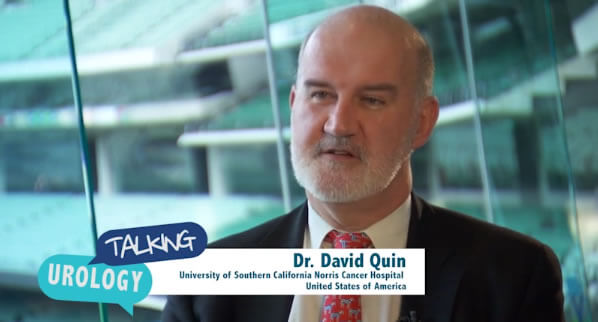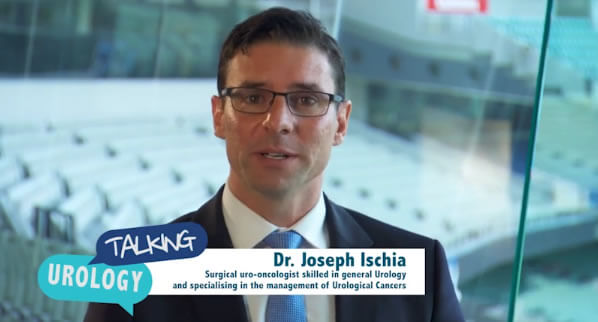USANZ 2017 – Dr Curtis Nickel
Dr. J. Curtis Nickel, MD is a Professor of Urology at Queen’s University in Kingston, Ontario, Canada.
Dr Curtis Nickel shares his ground breaking research on the urinary micro biome & its effect on pelvic pain.
Talking Urology podcast transcript
USANZ 2017 Interviews – Curtis Nickel
This is Talking Urology.
Joseph Ischia: We caught up with Curtis Nickel. He is the Professor of Urology at Queen’s University in Canada and specializes in pelvic pain. It’s an interesting area to specialize in, Curtis, but you have a wonderful talk today on new theories around the etiology of the pelvic pain syndrome, interstitial cystitis. What are some of the highlights of your talk today?
Dr. Curtis Nickel: Well, we make our clinical decisions in infectious disease in Urology based on technology that’s over 100 years old. We’re still taking urine samples, plating in an agar, and putting it in 24 hours in an incubator and then making a decision. We now know that we grow less than 1% of potential uropathogens by this technique. We don’t culture biofilm bacteria and we miss 99.9% of possible microorganisms that are in the environment that might be related to infectious disease. So, for years, my search for the putative organism, the smoking gun, of interstitial cystitis and chronic prostatitis was using this outdated technology and wasn’t able to find the organism. Now, with very high-tech, non-culture techniques, we can identify microorganisms. The one I used is an IBIS technique that works on the mass spec of molecular weight of the nucleus, which is unique for every microorganism. We are able to identify 98% of the microbiome in the urinary system, in the vagina and in the bowel, and what we found is what we learned in medical school that the urinary system, the bladder, the kidneys, were a sterile organ is not true. In fact, the bladder particularly the prostate are veritable microbial jungles. We’ve identified over 60 species in the bladder and 90 species in the prostate a bacteria that are present there in normal asymptomatic patients. We’re right now looking at the microbiome of the vagina, the bowel, and how it interrelates, and we’re learning that this very important microbiome that we all have communicates with the rest of our body through the neuroendocrine system. So, that bacteria in the bowel can affect what’s going on in the bladder. This is groundbreaking, and we come to the realization that we as a human have more microorganisms in our body than we do mammalian eukaryotic cells. We have more species of microorganisms than we have different eukaryotic cells. So, in fact, we’re nothing but a carrier for our microbiome which affects everything – our mood; our general health; our bowel function; and yes our bladder function; and pelvic, bladder, prostate pain.
Joseph: Are there any major differences between normal controls and interstitial cystitis or painful bladder syndrome in people that you found so far?
Curtis: So, that was our hypothesis. It was to find the microorganism that caused these diseases. So, we’ve just completed a four-year program, very expensive, on more than a thousand patients and age-matched controls, and what we did is we did find differences in the prevalence of certain bacteria and fungi between patients and controls; however, it wasn’t the smoking gun. These did not look like a putative organism that actually caused the mechanism. So, what we believe is it’s more a dysbiosis or a change in the microbial ecology or diversity that’s happening. That it may in fact not be one bacteria but it’s the relationship or the diversity of the microbiome you have in your bladder and prostate compared to somebody who does not have symptoms. That’s where we’re going in the future.
Joseph: Fantastic, Curtis. Thank you very much, that was excellent. Really appreciate your time.
Curtis: Okay.










